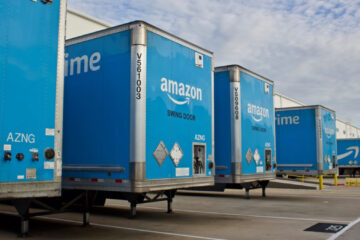Metaverse real estate sales reached $501 million in 2021 and could reach nearly $1 billion this year.
A crowd of some 50,000 people on April 22, 1889, waited for the sound of a bugle’s blast at high noon to begin the Oklahoma Land Rush.
By the end of the day nearly two million acres of land had been claimed.
And now there is another land rush happening, but there are no settlers stampeding on horseback.
This time it’s happening in the metaverse and the bugle has already sounded.
‘3D World Expanding Exponentially’
Virtual real estate is made up of designated pieces of code in an interactive web experience.
Pieces of code are partitioned to create individual “plots” within certain metaverse platforms and are made available to purchase as NFTs on the blockchain.
Sandbox, Decentraland, Cryptovoxels and Somnium are the top players in this market and real estate sales on these platforms reached $501 million in 2021, according to MetaMetric Solutions, referring to Sandbox, Decentraland, Cryptovoxels and Somnium.
Sales in January topped $85 million and could reach nearly $1 billion in 2022, the firm said.
“As the wider cryptocurrency market remains flat, the 3D world is expanding exponentially and looks likely to stay,” said Nicholas Cawley, strategist at DailyFX. “Metaverse real estate is essentially large corporates investing substantial funds into building in the metaverse, which many see as an additional sales channel going forward.”
Cawley said Meta (MVRS) – Get Meta Report, formerly Facebook, has launched its own virtual world while companies across the globe enter the virtual space every day.
“Metaverse stocks, including Decentraland and The Sandbox, are also expected to benefit as more and more companies and investors enter the 3D world,” he said.
The social media giant announced the name change in October. The metaverse is a $10 billion-project aimed at transitioning Facebook from its much-criticized social network and related family of apps and into what founder and CEO Mark Zuckerberg has called an “embodied Internet.”
‘A Real Thing’
In November, Republic Realm, a metaverse real estate investor and advisory firm, said it had completed the largest ever land acquisition in the Sandbox in a deal valued at more than $4.2 million.
The company is developing 100 islands, called Fantasy Islands, with their own villas. Ninety of the islands sold in the first day for $15,000 and some are now listed for resale for more than $100,000, according to CNBC.
The transaction represents over 7.9 million square meters of game area, the equivalent of 3 square miles or 1,200 city blocks.
TerraZero Technologies, a metaverse technology firm in Vancouver, on Saturday said it had completed of the first “metaverse mortgages” with one of its clients on Decentraland.
TerraZero said it had provided the majority of the financing to enable the client to purchase its virtual real estate.
“An entirely new economy is emerging and we want to enable entrepreneurs and others with similar products and services for the Metaverse that are available to them in the real world,” CEO Dan Reitzik said in a statement. “Mortgages and financing availability will expedite the development and adoption of the Metaverse, and we are excited to be at the forefront of this new and exciting economy.”
The debate whether virtual real estate is actually real estate “will likely continue for as long as the virtual real estate market continues to grow,” according to a commentary by the law firm Ingram Yuzek Gainen Carroll & Bertolotti LLP.
“Though one could argue that virtual real estate is not real estate at all, but merely an instrument used for advertising in the metaverse, it is difficult to dispute that the metaverse is a real thing in which people are going to congregate,” the firm said.


